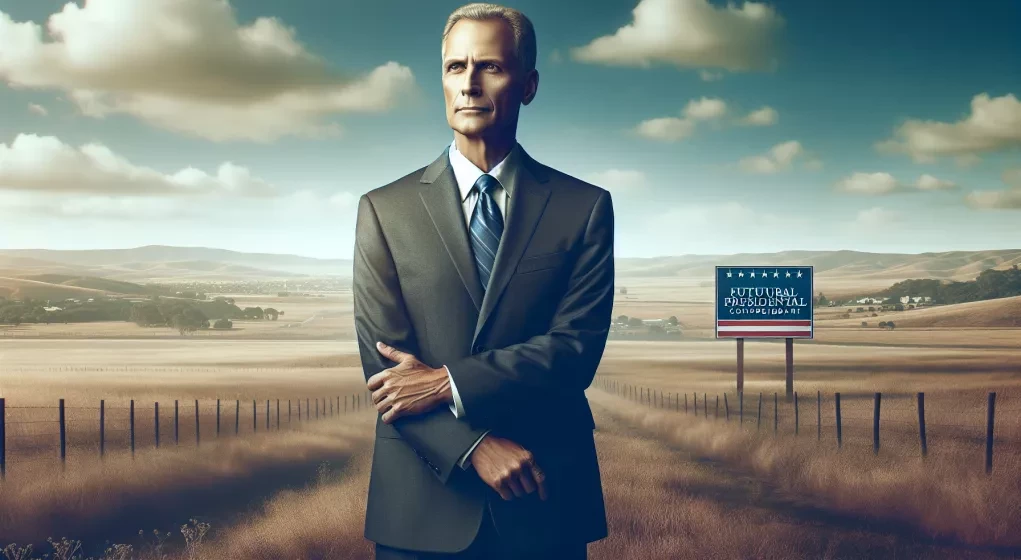The chessboard of American politics is no stranger to the ceaseless intrigue of power plays and early gambits. Scarcely had the echoes of triumph and defeat dissipated in the wake of the 2024 Presidential showdown, than the nation found itself peering upon the distant horizon of 2028. The indefatigable machinations of democracy stirred once again—an intriguing new contest emerging just as President-elect Donald Trump savored his victory over Vice President Kamala Harris.
Intriguingly, it was JD Vance, Trump’s stalwart vice president-elect, who found himself at the vortex of speculation—an early favorite, courted by the fervent whispers of the wagering exchange Kalshi as a likely standard-bearer for the Republican ticket in the forthcoming electoral fray. The duo’s alliance, cemented with a handshake on that fateful summer day of July 27, 2024, had just propelled them to the summit of American governance.
As the anticipation grows for the presidential inauguration on January 20, 2025, where Trump will commence his second term, the nation’s avid bettors have already set their sights on the political tapestry of 2028. Kalshi, a paragon of regulated online platforms for event contracts in binary political derivatives, serves as their arena.
The Democratic landscape teems with myriad prospects, yet it is Pennsylvania Governor Josh Shapiro who has surged to the fore. Shapiro, a candidate of considerable renown, stands as a beacon—an 18% implied odds frontrunner on Kalshi’s canvas. Political savants muse that a misstep may have forestalled Vice President Harris’s ambitions, as her choice of running mate side-stepped the third Jewish governor in Keystone State’s history—a decision that may have cost her dearly in Pennsylvania’s critical swing state, by a slim margin of 2%.
Shadowing Shapiro, California Governor Gavin Newsom lingers but a breath away, expectations trailing by a mere 1%. Once the whispered successor in Democratic echelons should President Biden have vacated his role prematurely, Newsom now waits in the wings as Harris assumed the mantle. Below him, Transportation Secretary Pete Buttigieg, Maryland Governor Wes Moore, and former First Lady Michelle Obama enchant the imaginations of spectators and strategists alike.
As for the Republicans, their field seeks a new champion as President-elect Trump’s approaching tenure fulfills his allotment of presidential terms. Vance emerges with robust odds of 59%, followed by an ensemble cast of ambitious statesmen: Donald Trump Jr., Florida Governor Ron DeSantis, Virginia Governor Glenn Youngkin, and U.S. Senator Josh Hawley of Missouri.
The scales seem marginally tilted in the Republicans’ favor—a slim 51-49% leading over their Democratic counterparts. Still, bettors are measured in their fervor, aware that fortunes are fickle, and a four-year wait looms before wagers bear fruit.
Beyond the predictions of presidential hopefuls, the incoming administration to hold sway under Trump’s extended reign invites its share of speculation. The world’s wealthiest visionary, Elon Musk, a major player in Trump’s reelection, lurks at the cusp of cabinet consideration. Meanwhile, prospects for Robert Kennedy Jr. and Hawaii’s former U.S. Rep. Tulsi Gabbard—who’s crossed the aisle from Democrat to Republican—are also subjects of eager betting, with their respective odds reflecting a blend of optimism and uncertainty.
In this unfolding drama of American politics, where anticipation already mounts for yet another historic clash, the stakes are as high as the passions that fuel them. And so, as bettors place their early bets and pundits weigh in with forecasts, the nation watches, waits, and wonders what the future holds.





